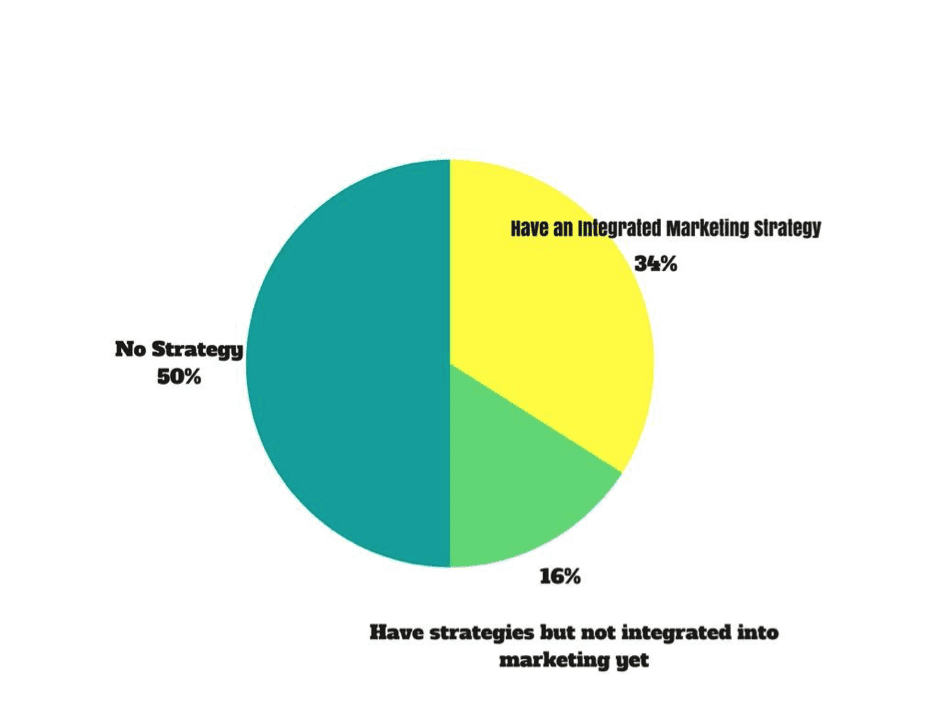It’s the 21st century, and every business out there is either already online, or soon will be. Now it’s the “Gold rush” for digital marketing agencies considering how not everyone is a SEO expert, or Digital marketer.
In fact if you ponder over this report by SmartInsights, you’d find that around 50% of companies “are doing digital marketing” but without a strategy.
Before taking the dive into creating a Digital Marketing strategy, let’s crunch some numbers:

So naturally, companies spend thousands, if not millions on hiring an agency and paying them off the money which could’ve gone towards other better use.
So here are some of the best Digital Marketing strategies, you can implement right off the books and the results are likely to show themselves up.
- Understand your Audience
It’s one of the most basic steps you can take towards creating your digital marketing strategy. What is Digital marketing if not understanding your audience and delivering the products they want? That’s the whole “Conversion” formula isn’t it?
There are various tools to help you out with these, Google Analytics’ Demographics is the perfect place to start, it let’s you know of your audiences’ age / gender and various other details as such.
Once you know who exactly are you targeting, things get much easier. I mean that’s the very first step, you can’t sell a Car to a 5th Grader, similarly you can’t sell skirts to a Male for himself, so yeah understanding audience isn’t a choice, it’s mandatory.
- Lead Collection
Once you know your audience, it’s high time you should start grouping them into various lead categories.
Start collecting their E-mails, and it’s a better approach if you can “categorise” the E-mails according to Age-group/ Gender or any other factor.
The Categorisation helps when sending various “conversion mails” (mails with offers /deals/products) to them, because you’ll be able to reach a “specific” kind of audience instead of reaching your whole E-mail list which might be pretty diversified and broad.
You can use OptinMonster, HelloBar, SumoMe and various other free as well as paid tools to start generating leads.
As well as E-mail marketing tools like MailChimp (paid), MailerLite (free), Aweber (paid) etc will help you manage as well as categorise the mails.
- Content Marketing Strategy
Digital Marketing just can’t ever be complete without a proper content marketing strategy. Be it your product descriptions, blog, or even the Emails, content has its presence everywhere.
So you need to make a written, solid plan so as to how many days a week you’ll publish content on, what will be the topics being covered, and how would you promote it. (Social media/ Paid ads / Guest posts etc)
Infact according to ContentMarketingInstitute, “Content marketing costs 62% less than outbound marketing” but it generates 3 times more leads and conversions!
And the same post also says that most successful B2B marketers use 13 or more content marketing strategies, so yeah that tells us how important that is, doesn’t it?
So yeah build a checklist consisting of your Business goals for the next 6 months, or 1 year, and then analyze how “content” can help you achieve those goals.
Some of the ways you can leverage content are:
- Lead-generation.
- Building Awareness.
- Up/Under selling a product.
- Increasing authority / brand recognisation.
Once you have such a checklist, you can assign a team or generate content yourself, and slide it down via different means to achieve the goals.
- Your Area of Expertise
Every company or brand is an “Expert” in something. There is one aspect or factor where others just can’t compete with you.
Leverage that area of expertise, offer solutions and alternatives via E-mails, blogposts or any other medium in that specific area.
Not just that, make sure you “market” your expertise. Include something like “We specialize in Marketing” or anything else through your content.
Once you’ve established some juice and authority via any topic/area, that same authority can be used to generate leads and convert potential customers because it’s the “authority” the human brain cares about, not exactly the “niche”.
- Paid Ads
Okay there’s immense competition, and people won’t just “discover” you out of the blue. No matter how awesome your product/ content / team / support or anything else is, you need to go out and make some noise.
After the initial lift-off, you can expect direct traffic, returning customers and basically a stable runway, but before you’ve achieved that paid ads do come to the rescue.
Once you’ve published your content or launched your product, it’s time to promote your hardwork.
You can do so via :
- Facebook Ads
- Google Adwords
- PPC Ads
- Search Engine optimization (For people to find you on Google/Bing/Yahoo and other search engines)
- Local Optimization.
- Affiliate Marketing
- Direct promotion on popular Facebook and Twitter pages.
- Blog
- “Not so Important Metrics”
People get lost in the race for “Metrics”. Numbers such as Facebook likes, Alexa rank and other stuff which really isn’t worth investing your time in.
Instead, if you focus on analyzing your audience, generating leads, turning them into customers, all those metrics get improved as a bonus.
But “Chasing” after those metrics in no way guarantees you success, because how many of your potential clients or leads worry about your Moz Rank or Facebook likes?
These are important, no doubt. But they should come in organically, because you provide quality to your readers, customers and clients, and not the other way around.
Final Words:
So if I have to sum up the steps to smart digital marketing strategy, I’d say “Generate Leads > Build Content > Promote Content > Leverage your area of expertise > Use Paid Ads to reach a wider audience and that should cover it.
There’s no secret to it, it’s simple “Brand exposure”, isn’t that the goal of any Digital Marketing campaign? And there are like a hundred different approaches you can opt for, these are just some of the first steps to that staircase.
Do let me know your experience and feedback on this piece.


